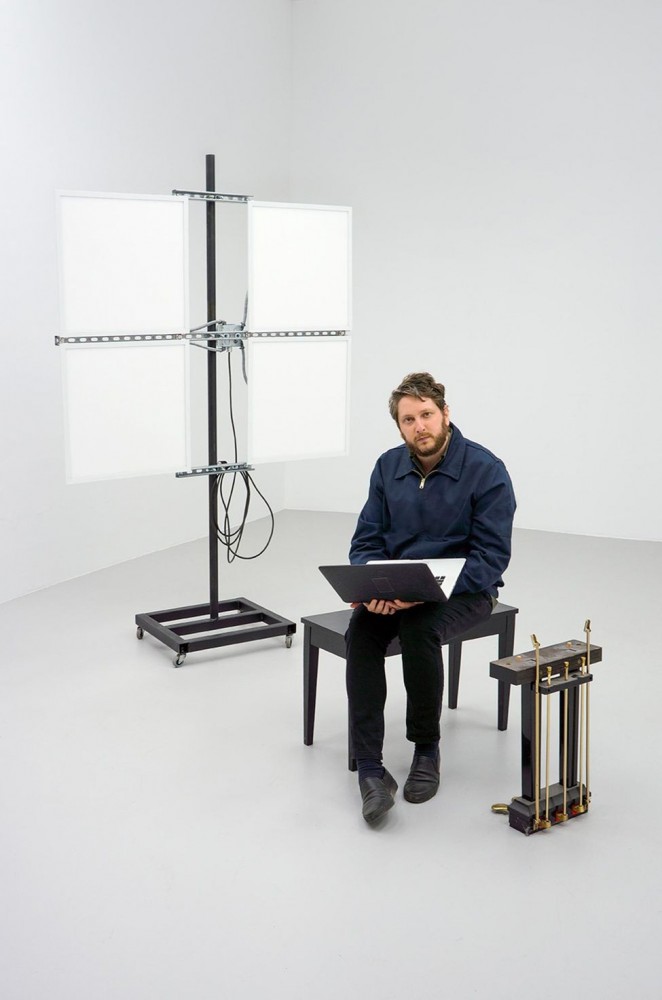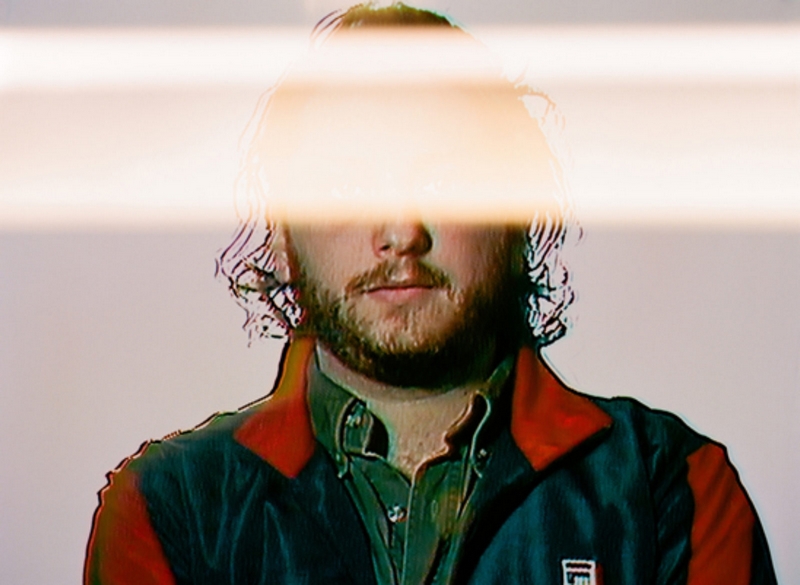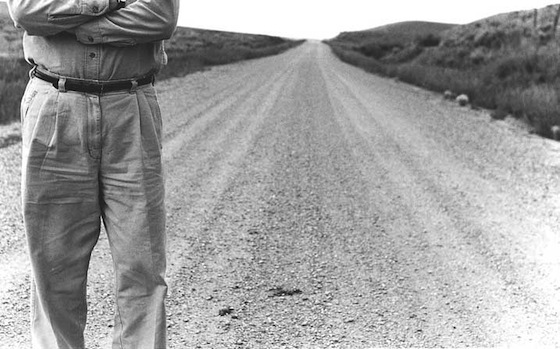Oneohtrix Point Never – Seething out of the lost signal

Oneohtrix Point Never “Age Of” (Warp, 2018) – review by Mikkel Rørbo, photo: Blake Wood
If you search for Oneohtrix Point Never on your favorite search engine or hegemonic digital platform, you’ll be told that Daniel Lopatin has been at it for quite a while, “Age Of” is (approximately) the 10th studio album from his hand and it is put out on seminal electronic label Warp. He has been busy doing a number of collaborations recently as well as scoring the movie “Good Time”. It shows on “Age Of”. There is a cinematic, narrative quality here for sure – I will get to that – and a number of the collaborators feature on the album, notably ANOHNI, but furthermore with contributions from percussionist Eli Keszler, noise superstar Prurient, keyboardist Kelsey Lu and producer James Blake.
“Age Of” is undeniably a great, albeit complicated, pop album. In my opinion it is in fact the best material from Lopatin to date, in turns extremely satisfying and challenging. It is great music, but that’s not why you keep coming back, as I’m sure many familiar with his previous work will recognize. OPN as a project has always been meticulous and extremely self-conscious about its inner workings and reference points, to me at least this has always been part of its appeal, but on “Age Of” this has been pronounced to an extreme degree, made into a conceptual point in itself. His previous album, “Garden of Delete”, also followed a conceptual story, so this conceptuality is hardly new for Oneohtrix Point Never – and indeed “Age Of” and “Myriad”, his current touring ‘concertscape’, follow a rough sci-fi narrative of omniscient AIs that want nothing more than to be dumb as humanity currently is. Fun stuff.
On “Age Of” several tracks have an unfinished and self-contained quality to them, something that seems very aligned with a recurrent obsession with hyperconnectivity and the internet. It unproblematically jumps from one theme and expression to another, giving cursory introductions to its motifs and ideas, much like a soundtrack to late-night Wikipedia rabbit holes, zealous LibGen downloading and sub-Reddit tunneling, only to excavate them later in other self-referential forms. Technology becomes an overarching narrative, but simultaneously juxtaposed with elements that draw on a far more folky, rural locus, something all-too-human. This contrast is conceptually introduced on the album through a strong embodied vocal presence but processed and obscured through e.g. autotuning or with the recurring motif of what Lopatin has called “a perfectly dumb machine”, the Harpsichord, played like some trolling midi-Mozart.
This humanity meets techno-dys/utopia on a song like “Same”. A surprisingly beautiful hymn with lyrics referencing engrained tropes of human culture (‘Christianity’, ‘religion’) as it cyclically states “undo us below, same, as above, fool to dream a machine to dust”. The posthuman intelligence stuck in a vacuum, uncared for, another product of humanity’s neglect. If that is how you want to interpret it – again, fun stuff.
The embodied, sentimental and technological is ever-present, many tracks featuring both acoustic and digital instrumentation, vocals, extreme genre-fluidity, references to digital culture and radioactive waste. “Black Snow” is such a hit track, leading with some heavy breathing and minimally, slowly building a pop composition that could not exist outside of the digital age. That track is a nugget for the true heads as it references the Cybernetic Culture Research Unit and a rework of their text “Channel Zero”, itself an imagining of a scatological future of TV static and “return[ing] the earth to its sub primordial state”. The CCRU was a collective of artistically inclined philosophers, most well-known of whom was Sadie Plant and Nick Land. Now, there’s something to be said about unproblematically referencing the work of Nick Land, also known as an icon for alt-righter Steve Bannon, in the contemporary political climate, but in all of its accelerationist glee and dystopic, superficial internet addiction disorder-fuelled fascination, it seems like a subtle and, again, self-conscious choice on the part of Lopatin to make this a central track on an album that is in turn cynically reflecting on the stupidity of humanity and its hopeful futures.
“Age Of” is an album that perhaps reflects on contemporary culture’s obsession with self-analysis (I hope the irony is not lost on anyone) and self-reference, destructions (self- and other, environments, ideas), nostalgia and its accompanying paralysis, but also the construction of futures less grim. There is an uneasy ambivalence throughout the album, an oscillation between the gorgeous and digestible, the scathing and disparate, confusing uncompletedness of it all. It does not provide many clear answers, but gives plenty of space for reflection and, yes, analysis. I cannot recommend indulging our favorite cultural pastime enough, when it comes to “Age Of”.
Info: “Age Of” was released on June 1st by Warp. Oneohtrix Point Never will do a sole European performance of Myriad in London in July.


